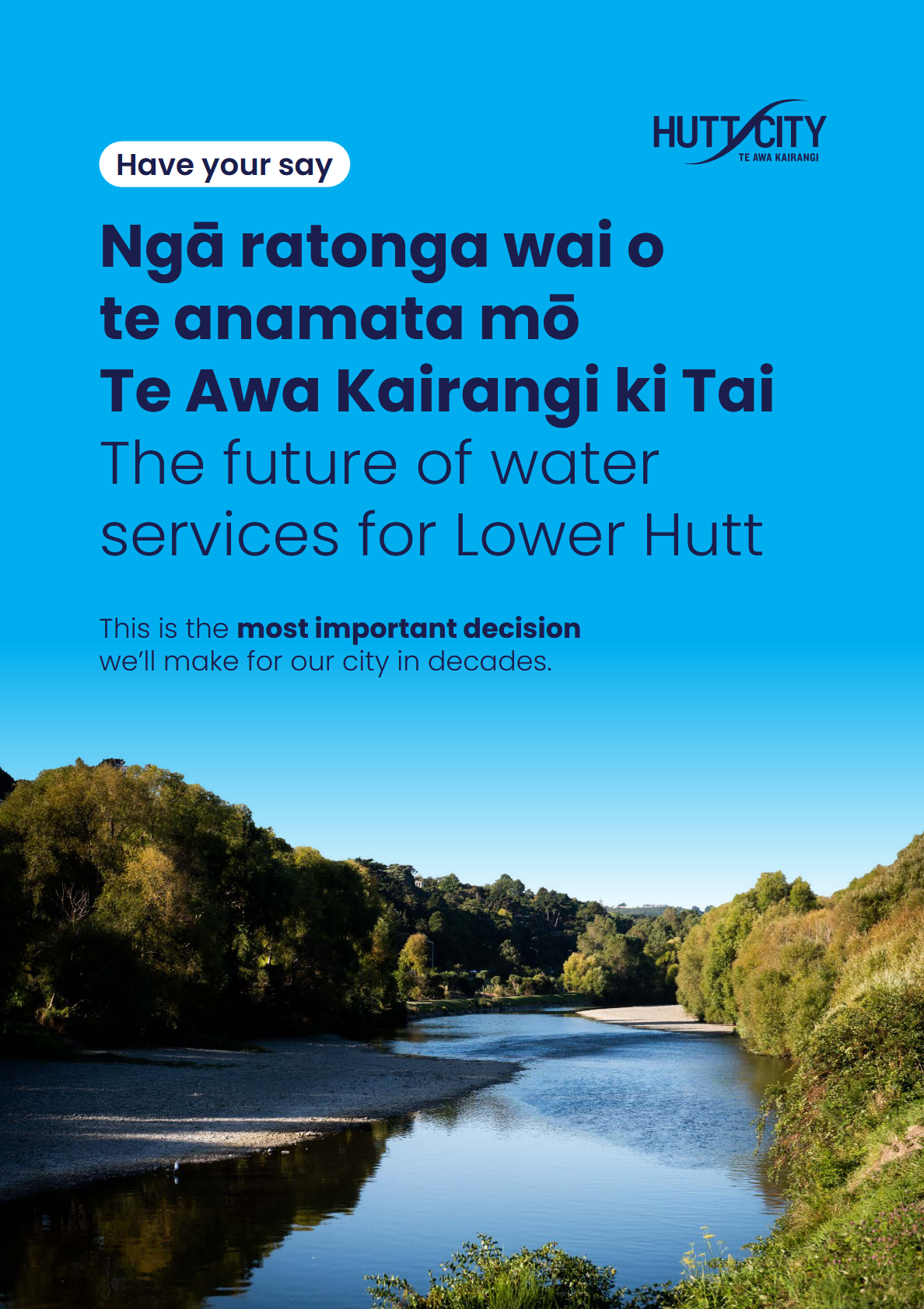Local Water [might be] Done Well in the Wellington Region
![Local Water [might be] Done Well in the Wellington Region](/content/images/size/w960/2025/04/Timmo-s-response-to--the-most-important-decision-we-ll-make-for-our-city-in-decades.-2-.png)
This week, submissions closed on the Hutt City Council's proposal to support the creation of a new entity that will be responsible for waste water and drinking water in the Wellington region. The cover of the consultation document states that this is "the most important decision we'll make for our city in decades".

Problems with how water services are delivered in Lower Hutt today
The current model is quite clunky. Pumping water around the region and making it safe to drink is inherently a shared exercise, but responsibilities are placed in individual councils.
This local ownership model means that political decisions, notably underfunding, can adversely affect areas that are pulling their weight.
Clunkiness aside, the biggest problem however is how to fund capital upgrades. New infrastructure is needed, but councils are restricted in the amount that they can borrow to fund it.
For example, the Seaview Wastewater Treatment Plant is co-owned by both Upper Hutt and Lower Hutt City Councils. It's at the end of its life and components keep failing. Every major rain event leads to sewerage outflow into the Waiwhetu Stream. It would be very difficult for those two councils alone to borrow enough to give it a few more decades of working life.
Under current rules, Hutt City Council restricts itself to a debt loading of 2.8x its revenue. To fund an upgrade to the plant—and other things that need fixing—many local services including roading will need to be paired back.
A new entity would be able to have a longer debt horizon. As its assets last for decades, and so wouldn't need to revenue provide on its balance sheet.
Risks of the proposed model
Unfortunately, there are three major downsides with the council's preferred option of creating a new entity to provide drinking and waste water services:
- taking on lots of new debt is expensive; it exposes the region to interest rate rises and increases the severity of a default
- the new entity would be a monopoly service provider that's able to unilaterally raise prices
- public accountability will be significantly diluted as local government elections are near
It's excellent to see councils working together to achieve common outcomes. But reform should be carefully planned to minimise risk. If servicing costs increase because of mismanagement, interest rate changes and higher levels of baseline debt, the general public will be much worse off. Fees will be raised for drinking water and sewerage, while local politicians will be able to (somewhat rightfully) wash their hands of the situation.
My submission
Here is the free form text of the submission that I made as part of the consultation process.
Thank you for the opportunity to comment.
I'm broadly supportive of efforts to reform the deliver of water services to the region. There are however significant risks and council should act cautiously and act in the interests of the region over the long term.
From the perspective of Hutt City Council, creating the new entity looks very favourable. Council's nominal debt will be significantly decreased. Elected members are likely to be very happy with the idea, as they will be able to remove themselves from the political crossfire of water services delivery.
Reform is likely to be very costly though. The benefits are rarely as significant as promised.
The primary benefit of creating a new entity appears to be that it will able to use its capital asset base to secure debt to fund investment into capital infrastructure. At first glance, this seems very positive, as New Zealand's local government arrangements limit their funding opportunities. A new entity will be able to balance its budget over many more years than what councils are able to do.
However, there are also significant risks. Those risks primary fall on the users of water services.
One of the claims made in the consultation document is that user charges will be lower with a new model. That's predicated on debt servicing costs. Servicing costs naturally increase as debt increases, which is exactly the intent of the new structure.
As a monopoly provider, the new entity can increase its fees quite easily. This means that customers of the new entity will be absorbing the risk.
In a hypothetical worst case scenario, the new arrangements would place the region's water infrastructure at risk of being sold in the case of default. While the catastrophic case is extremely unlikely to occur, some form of government intervention would likely be triggered. This means that public funds are being risked.
The current system places some constraints on the board of monopoly provider (Wellington Water) through the electoral process. Under the new arrangements, politicians will be able to say "this is not our problem". Instead they'll focus on the low debt levels of council. This indirection will be very disingenuous. The debt hasn't vanished, it's been shifted.
Further research
If you're interested in looking into this further, then you should visit council's Have Your Say consultation portal, focusing on the "Local Water Done Well regional consultation".
The consultation document Ngā ratonga wai o te anamata mō Te Awa Kairangi ki Tai The future of water services for Lower Hutt is also available for download here:
Disclaimers
I also contributed to the submission made to council from Friends of Waiwhetu Stream. That submission was in support of council's preferred option.